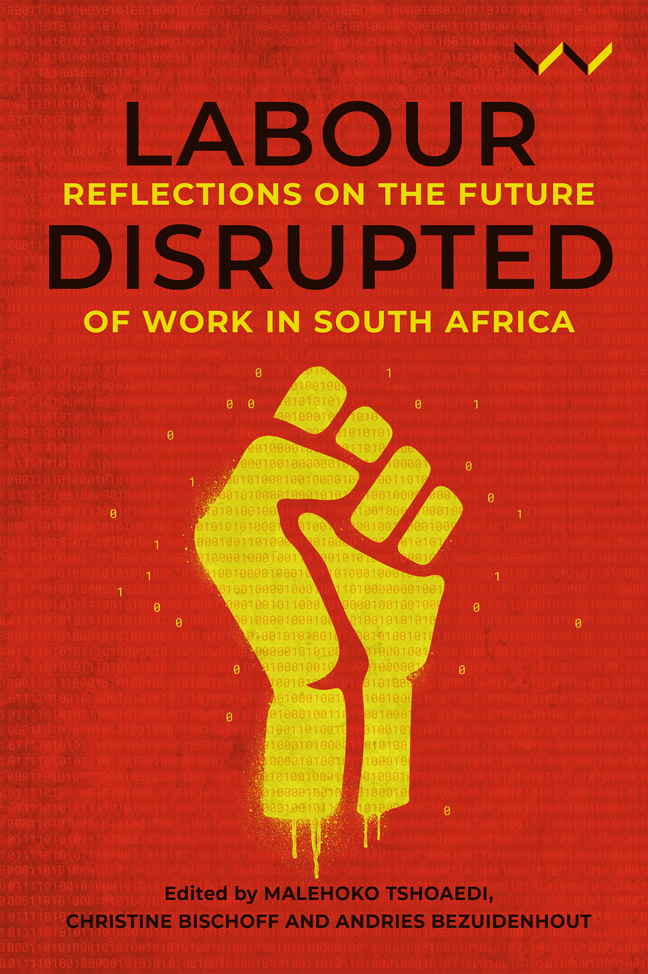Book contents
- Frontmatter
- Contents
- Figures and Tables
- Acknowledgement
- Acronyms
- Introduction: Disruptions and New Directions in South African Labour Studies
- Chapter 1 Fragmented Labour Movement, Fragmented Labour Studies: New Directions for Research and Theory
- PART I Changing Solidarities
- PART II Technology and Work
- PART III New Forms of Organising
- PART IV Labour and Lockdown
- Conclusion: Questions, Answers and New Directions
- Contributors
- Index
Chapter 8 - Emotional Labour in Government Frontline Work: The Burden of Public Call Centre Workers
Published online by Cambridge University Press: 01 March 2024
- Frontmatter
- Contents
- Figures and Tables
- Acknowledgement
- Acronyms
- Introduction: Disruptions and New Directions in South African Labour Studies
- Chapter 1 Fragmented Labour Movement, Fragmented Labour Studies: New Directions for Research and Theory
- PART I Changing Solidarities
- PART II Technology and Work
- PART III New Forms of Organising
- PART IV Labour and Lockdown
- Conclusion: Questions, Answers and New Directions
- Contributors
- Index
Summary
INTRODUCTION
The state is South Africa's single largest employer. In his contribution to this volume, Lucien van der Walt points out that South African labour studies as a field has neglected ‘the role of the long history of unions in the state, of studies of the state as workplace including via labour process theory, and of the distinctive of state activity’. He argues: ‘Understanding the state on its own terms is still neglected in labour movement studies, where the state typically appears as an agent of violence, patronage, or just another employer’. In order to rectify this, he argues for ‘labour process studies [that look] at the past and present of state sector work’. The aim of this chapter is to address that oversight. A secondary aim is to draw on existing labour process theories of white-collar service work, but also to disrupt this perspective by means of a case study drawn from the civil service, where the ‘ client’ is not a consumer based in the private sector but rather the citizen of a country. Call centre work is a type of human interactive service work that requires considerable investment in emotional labour. This chapter discusses the deployment of the emotional labour in the interface between the frontline worker as both citizen and customer in the local government in South Africa. Using the concept of ‘emotional labour’ borrowed from Arlie Hochschild ([1983] 2003), this chapter hopes to expand the concept and application in the public sector.
Emotional labour tends to centralise the customer as the main feature of interactive work. The quality of emotional labour is measured through ‘customer satisfaction’. This means that ‘facial expressions, bodily postures, choice of spoken word, tone of voice and behaviour’ are a central part of call centre duties for the competent performance of work (Huang and Yeoh 2007, 198). Rahmat Omar (2016, 232) tells us that ‘the product of the interactive work is relationship rather than a product’. This intangible nature of the product in service work creates potential challenges in public sector call centres.
The introduction of customer cultures within the public service has transformed service work to include emotional labour, where citizens do not only demand ‘care’ but also emotional labour. This is based on the material conditions under which the emotional labour is deployed in the public sector, which is different from the private sector, where the ‘customer is king’.
- Type
- Chapter
- Information
- Labour DisruptedReflections on the Future of Work in South Africa, pp. 172 - 184Publisher: Wits University PressPrint publication year: 2023

